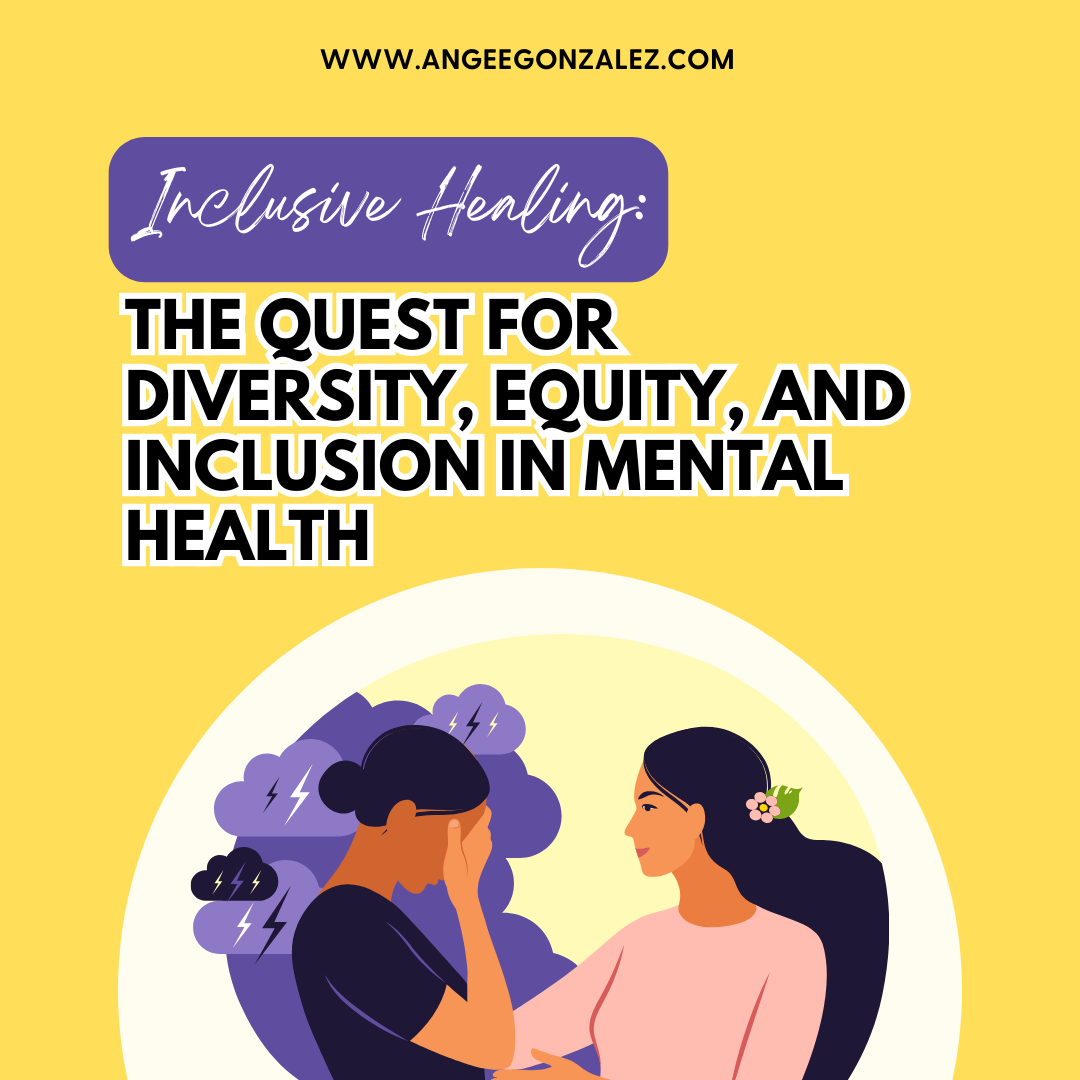
The Quest for Equity in Mental Health Care
If you've been following my journey, you know that I recently shared that I was wrongfully terminated last year after enduring harassment and discrimination from a colleague based on my mixed-race. That abrupt end was not just a termination of a job, but the ignition of my fight for justice and equality. In the aftermath, I was compelled to peel back the layers of my own experiences as a mixed-race individual in a leadership position, only to discover a glaring void where the Civil Rights Act and the EEOC should have protected me.
This realization was deepened as I recollected other instances of harassment and discrimination at work, a pattern where I never felt safe reporting these instances to HR, for fear of not being believed or understood. One particular instance when I did speak up was after a frivolous complaint was filed against me. I took a leave of absence to seek therapy, the insurance company denied my short term disability benefits based on a cookie-cutter peer review of my claim and deemed me fit to return to work, even though the treatment I was receiving wasn't addressing my unique needs as a multi-racial leader in corporate America. It became evident that I couldn't be the only minority, and specifically mixed-race individual, who was not receiving adequate treatment and/or who was being denied disability benefits. I even appealed their decision and provided evidence-based research highlighting the complexities and various forms of discrimination mixed-race individuals face, the traumas of being a BIPOC, and the compounding impacts to one's mental health when their individual needs are ignored. My appeal was denied twice. As I advocated for myself in those dark moments, I realized that if a BIPOC like myself with an advanced degree in healthcare was hitting a brick wall, how was the average person dealing with a mental health crisis advocating for themselves?
It made me think about my late father, Hector Gonzalez, who was diagnosed with Schizophrenia before I was even born. I started wondering who diagnosed him? What did they base it on? Was it his behavior? Had they factored in his unique experiences as a non-Spanish speaking, light-skinned, Puerto Rican and Black man, living in a predominately Black low-income housing project, with an absent father and the eldest of 6 kids?
To paint a clearer picture, we have to consider the origins of psychiatry. Historically, it has been dominated by a particular demographic: white men. This is not to discount the advancements that have been made in healthcare, but to recognize that the doctors who originally defined most mental health conditions haven't considered the vast array of external factors like racial identity and cultural backgrounds.
This is why I personally have a problem with labels. Yes, labels can help differentiate conditions but when they originated from people who don't get the full picture of who you are—where you come from, the weight of your history—this is just another form of systemic oppression. I've seen too many in my family and community, be reduced to a stereotype by a diagnosis that claims to be a chemical imbalance, by doctors who don't understand external factors that have direct impact to the state of a person's mental health.
I'm talking about the kind of struggles we as BIPOC face like socio-ecomic determinants, generational trauma, the daily battle against systemic oppression, and the silent scars that we carry. These aren't things that you can just slap a label on, prescribe a mood/mind altering pill, and call it a day. It's time that our mental health be reevaluated through the lens of healthcare professionals who understand the larger story, the one that needs a voice, not experimenting with another drug.
Which leads me to the question of Big Pharma - the giant in the room, slinging pills like they're the holy grail. What happens when the medicine dulls the very essence of what makes a person themselves? I've personally witnessed this happen to so many people and then when they stop taking meds, they go through withdrawal, they act out, and many times end up hospitalized, imprisoned, or worse. We need to talk about this, to ask the hard questions about who really benefits when our health care system seem to be more about profit than people.
So, where do we go from here? I believe it's time for a new chapter—a narrative that's written by all of us, for all of us. One where the mental health system doesn't just see black and white but every shade in between. And for me personally, where my mixed race isn't just a footnote, but a focal point.
Finding a therapist who truly understands the intersections of our racial identities and our culture can make all the difference on your healing journey. I've discovered a directory that celebrates and acknowledges this diversity, connecting you to therapists who get it—because they have lived it. Check out InclusiveTherapists.com and begin the journey to healing and a more authentic you.
Much Love & Much Light,
Angee
